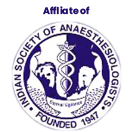Important Safety Guidelines to avoid Covid 19
Wear Mask
Wear a mask in public, especially indoors or when physical distancing is not possible.
Wash Hands
Clean your hands often. Use soap and water, or an alcohol-based hand rub.
Social Distance
Maintain a safe distance from others, even if they don’t appear to be sick.
Vaccination
Get vaccinated when it’s your turn. Follow local guidance about vaccination.
Got COVID-19 Symptoms? What Should You Do?
RTPCR Test
If you think you have COVID-19 symptoms, then get RTPCR test done from the nearest COVID care center.
Home Isolation
Stay home and self-isolate even if you have minor symptoms such as cough, headache, mild fever, until you recover.
Prone Position
If a COVID-19 patient’s oxygen is falling, consider lying down on stomach. It will help in increasing the level of oxygen within minutes.
Check SpO2
Keep monitoring your oxyden level, and if it gets <90% then admit to nearest COVID care centre or hospital.
Facts about anesthesia for the benefit of general public
It is a drug induced and reversible state of amnesia (loss of memory), analgesia (loss of pain), loss of responsiveness, loss of muscle reflexes, decreased stress response or all of these simultaneously.
Anesthesiologist is a person who is qualified, experienced and trained in administering anesthesia and taking care of you during operation/procedure. The qualification is obtained after a rigorous training for minimum period of 2 years (DA) or 3 years (MD/DNB) and is conferred after assessing suitability through an exit examination.
There are basically three types of anesthesia:
Local anesthesia- generally administered by the surgeon, this anesthesia blocks the sensation from only the part of the body which undergoes surgery.
Regional anesthesia- administered by anesthesiologist, this anesthesia is administered during surgeries of the lower half of the body through an injection in the back or in the groin or lower neck for lower and upper limb operations, respectively.
General anesthesia- administered by anesthesiologist; it causes reversible loss of consciousness and awareness, immobility, and loss of sensation throughout the body. Drugs are administered through a mask and delivered with each breath or injected into bloodstream through a vein in the hand. The type of anesthesia is decided by anesthesiologist based on patient's medical condition, surgical site and patient preference after weighing the risk/benefit and explaining the same to patients.
It is decided by a pre anesthesia evaluation (PAE). A medical and surgical history is obtained from you, followed by physical examination to check mainly the function of your heart and lungs. This is followed by evaluation of your laboratory, radiology, neurology and cardiology reports. If all these findings are within normal limits, you will be accepted for surgery under American Society of Anesthesiologists (ASA) grading system of 1-2. If there is abnormality (history of medical problems, abnormality in physical examination or in your reports from investigations), opinion from specialty experts and further investigations may be sought before considering fitness level for anesthesia. These abnormalities place you in higher risk category of ASA grading (3-5).
Like any procedures, anesthesia also carries with it certain risks. Most of these are from patient factors and are according to ASA grading. The associated risk of anesthetic related complication and death is graded according to the ASA grading and ranges from 0-0.3% in ASA I status (normally fit individual) to 9.4-57% in ASA grade V (critically ill patient with significant medical problems). The risk is explained to the patient/relatives before surgery in the informed consent form.
Deaths during anesthesia are extremely rare but can occur after a major operation mostly because more complicated surgeries are performed, older patients are operated and patients have more complicated co-existing health issues now compared to earlier. Other less common causes for adverse outcomes include inadequate hospital and OT infrastructure, unqualified people administering anesthesia and not adhering to well established safety guidelines by the anesthesiologist.
After your anesthesiologist has evaluated you as described above, he/she will discuss with you the anesthetic plan and type of anesthesia best suitable for your ASA status and your surgery, the need for blood transfusion, the need for probable ICU stay and post-operative respiratory and cardiac support, fasting status, medication to be taken or avoided before surgery/anesthesia, measures for postoperative pain relief, medications to relieve anxiety and also obtain an informed written consent after explaining the above. You will have to adhere to all the instructions given by your anesthesiologist to have good outcome. You should be honest and forthcoming about your past and present medical/ surgical problems, any allergy to drugs, and stick to fasting orders to avoid any adverse perioperative outcome.
Anesthetics are administered by qualified Anesthesiologists very carefully and within a recommended dose based on body weight and your medical condition. The safety standards in anesthesia are akin to aviation/nuclear industry. Prior to every takeoff (anesthesia), a thorough check of monitors, machine, equipments and drugs including those that might be required for any emergency resuscitation is done. There are minimum standards which are established for monitoring during anesthesia to ensure patient safety and these requirements are adhered to during anesthesia. Today better drugs, better equipments, improved training, cleaner OT/ICU environment and adherence to patient safety checklist has made anesthesia safer.
You may have certain fears/apprehensions about anesthesia like:
Will I wake up after anesthesia/surgery?
Yes, unless there is a major problem affecting your brain.
Will someone monitor me during operation?
Your anesthesiologist will monitor your body physiology (heart rate, blood pressure, oxygen level, fluid intake and urine output, temperature, muscle relaxation, depth of anesthesia etc) continuously throughout the surgery.
Will I have pain?
All measures will be taken to provide a pain free surgery. You might still have some pain after surgery for which medications will be given to minimize it.
Will I be aware during operation?
If general anesthesia is administered for you, you will not generally be aware of the surgery. You will feel as fresh as you have woken up after sleep without remembering the events of surgery. In regional anesthesia you may ask your anesthesiologist to give you sleep medications if you do not wish to stay awake during your operation.
Will I have nausea/vomiting?
All measures will be taken to prevent occurrence of nausea and vomiting. After the operation, if you still have nausea medications will be given to reduce it.
How long will it take for me to awaken from anesthesia?
After general anesthesia, you will generally be awake in 15 to 30 minutes. If it gets delayed beyond this time, causes other than anesthesia for delayed recovery have to be investigated.
Why should I fast before surgery?
You make take normal diet till about 8 hours before surgery and plain water till about 2 hours before surgery. Inadequate fasting duration can put you at risk of aspiration of your stomach contents into your lungs and result in adverse outcome.
Elective surgery was performed very infrequently prior to the advent of anesthesia. From 1821 to 1846, Massachusetts General Hospital recorded 333 surgeries, representing barely one case per month. Surgery was a last and desperate resort to save patient's life. Without anesthesia, surgery was about yells and screams, excruciating pain, and most horrible in memories. Before anesthesia came into practice, surgeries were performed with mesmerism, hypnosis, distraction, knocking the patient unconscious with a blow, opium, alcohol and restraining the patient physically. Today, millions of people undergo safe surgeries worldwide (In Bangalore, about 2 lakh surgeries are performed under anesthesia) not only of lifesaving nature but also to cure and correct health problems, prolong life and improve quality of life.
Anesthesia is an essential part of every surgical procedure. The present day success in surgery including complicated ones is largely because of improved safety and monitoring advances in anesthesia. Life-saving procedures like open-heart surgery, brain surgery or organ transplantation would be impossible without anesthesia.


